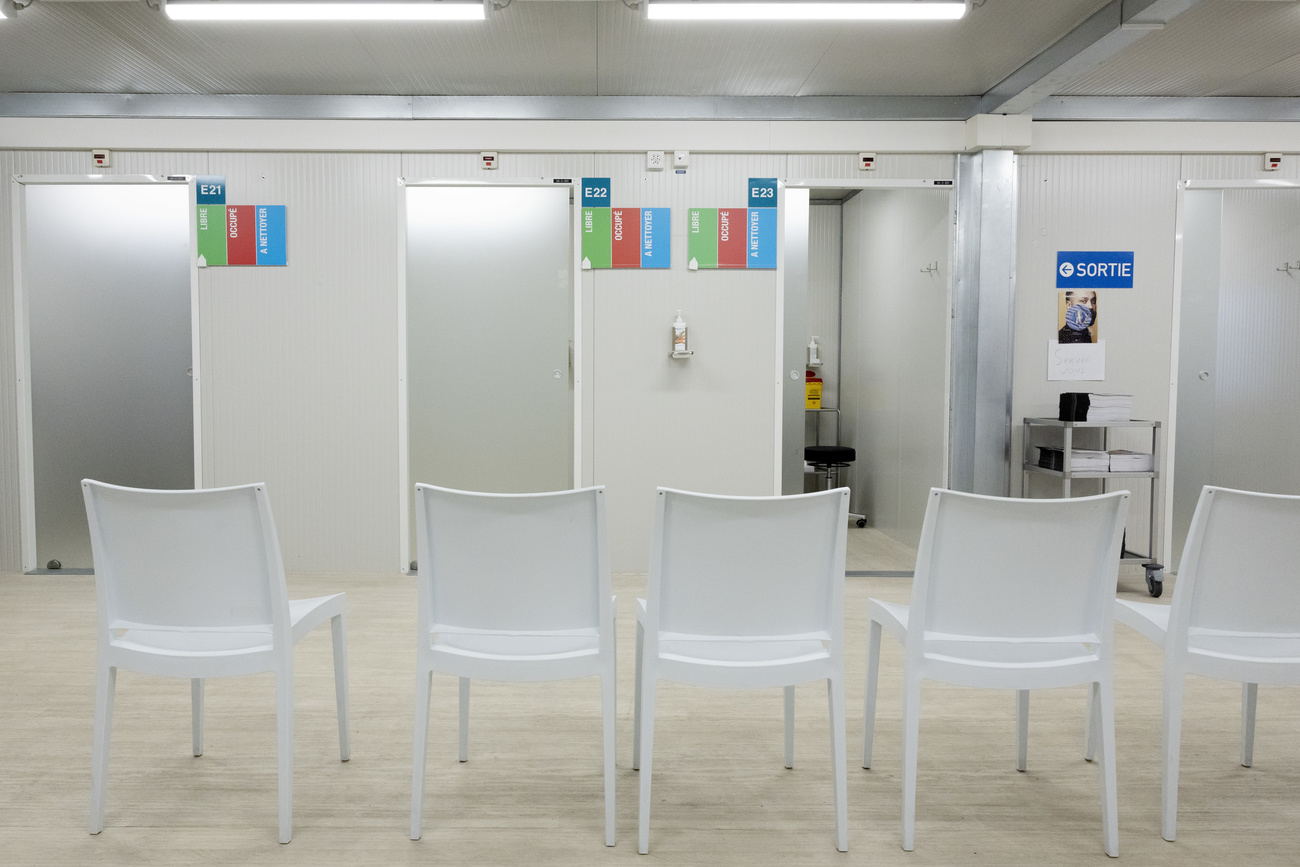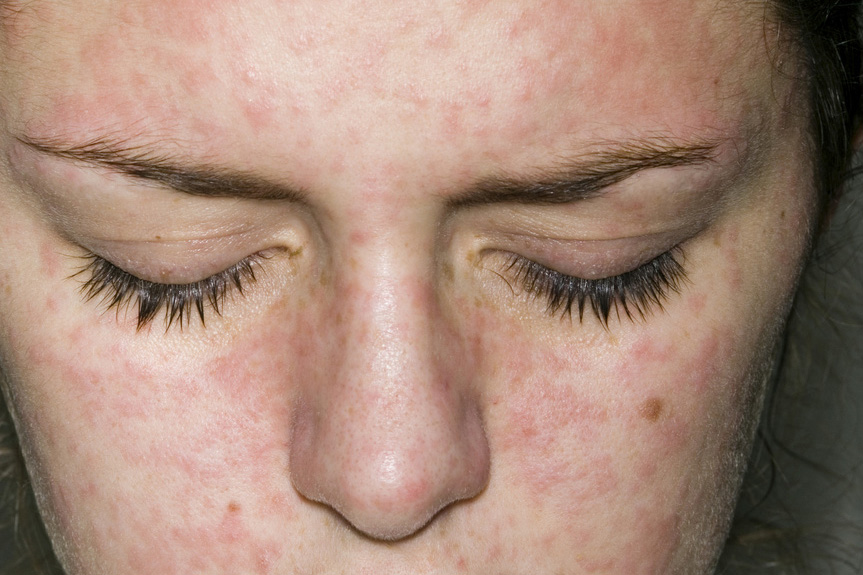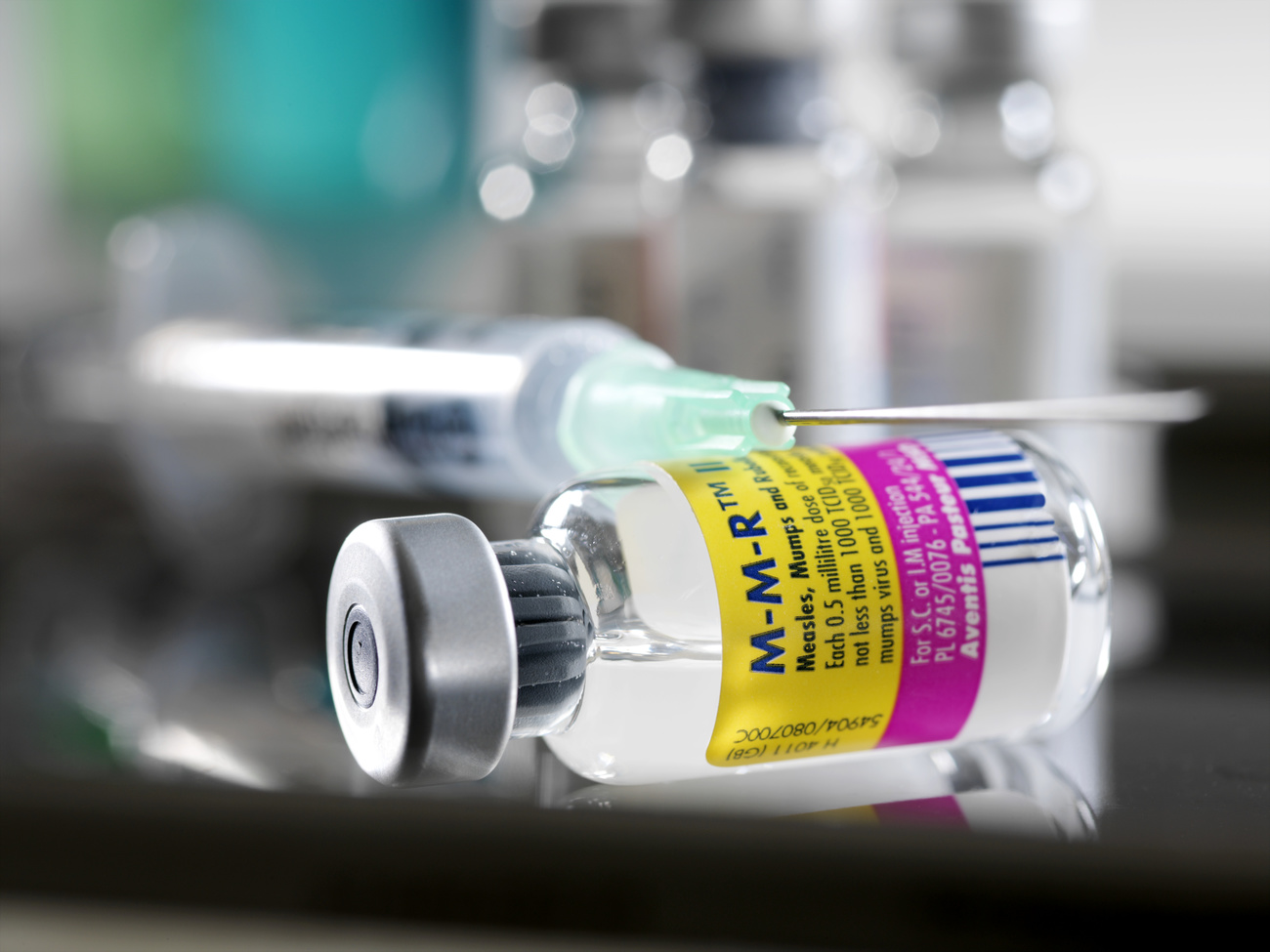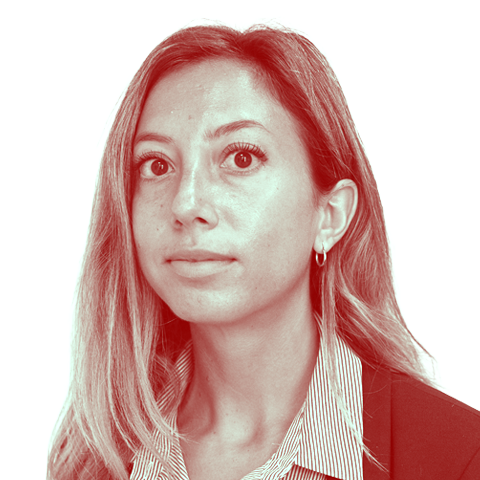
Dealing with vaccine hesitancy in the age of misinformation – lessons from Switzerland

Outbreaks of vaccine-preventable diseases such as measles and whooping cough are making headlines once again – not only in countries with limited access to healthcare, but also in regions where inoculation is widely available and free.
In 2024, the WHO European Region recordedExternal link the highest number of measles cases in over 25 years. In the United States, an ongoing outbreak has already caused the first measles-related deathsExternal link in more than a decade, and the country now risks losing the elimination status for the disease that it achieved in 2000.
These outbreaks, which are partly fuelled by declining vaccine coverage, are a reminder that immunisation remains a vital factor in controlling and eliminating infectious diseases. In recent years, concerns and doubts surrounding the necessity, safety, and effectiveness of vaccines have been growing. And while hesitancy doesn’t necessarily lead to refusal, it can still cause delays, missed doses, and lower overall coverage – all of which increase the risk that potentially life-threatening viruses and bacterial infections will spread.
As governments around the world grapple with rising vaccine hesitancy, Switzerland’s experience with complementary and alternative medicine (CAM) providers – who are well integrated into the healthcare system and often perceived as more open and understanding – highlights how empathetic, patient-centred communication can make a difference.
Despite often being portrayed as being anti-vaccine in the media, hesitancy is, by definition, “a state of indecision and uncertainty before a decision is made” on whether to get a jab, says Heidi Larson, Professor of Anthropology, Risk, and Decision Science at the London School of Hygiene & Tropical Medicine. Larson founded the Vaccine Confidence ProjectExternal link in 2010 to better understand growing vaccine scepticism and misinformation.
This is why people shouldn’t be categorised simply as “pro” or “anti” vaccine, warns Michael Deml, a researcher at the infectious diseases department of the Kantonsspital Baselland, the central healthcare facility for the Basel region. “It’s a lot more complex and nuanced.”

More
Global concern over measles is rising. Should Switzerland worry?
People may have doubts about a specific vaccine, worry about the number of shots their children receive within a short period, or have questions triggered by something they read or heard, says Deml, who holds a PhD in epidemiology and public health. “There’s a spectrum,” he adds. “But the proportion of people who are entirely against vaccines is really small – just around 1-2% in Switzerland.” The figure is estimated to be around 3% in the UK and 7% in the US and Canada, according to one studyExternal link published in 2022.
These may be small groups, but they are often highly visible and loud, says Philipp Dreesen, Professor of Digital Linguistics and Discourse Analysis at the Zurich University of Applied Sciences (ZHAW). He is leading a research project on the discourse around vaccines in German-speaking Switzerland and how it has evolved between 2000 and 2025. “There is a much larger, quieter, portion of the population that is simply hesitant or cautious.” And it’s this undecided group that public health authorities should focus on, he says, as they are still open to information and reassurance.
Old fears, new platforms
Vaccine hesitancy is not new, and it is not unique to the digital age. “It has existed ever since the first vaccines were developed,” says Dreesen. While the specifics vary over time and between individuals, the underlying concerns remain the same: side effects, safety, and whether a certain vaccine is truly necessary.
In recent decades, however, hesitancy has escalated, according to Larson, a trend experts attribute to the amplifying effect of the internet and social media, which can rapidly spread misinformation and fuel doubt. In 2019, vaccine hesitancy was named one of the top ten global health threatsExternal link by the World Health Organization (WHO), and it remains a pressing issue. In December 2024, Director-General Tedros Adhanom Ghebreyesus reiteratedExternal link the WHO’s ongoing focus on combating “fake news, lies, conspiracy theories, misinformation and disinformation”, all of which undermine trust in evidence-based health policies, including immunisation programmes.
Across the EU, public confidence in vaccines has declined, according to a surveyExternal link by the European Commission and the Vaccine Confidence Project. The share of respondents who say they believe vaccines are important fell from around 92% in 2020 to 81.5% in 2022, with declines seen in all 27 member states except Sweden. Confidence in vaccine effectiveness dropped from 89.7% to 85.6%, and in 16 countries, fewer than 80% of respondents said they agreed vaccines are safe.
The UK has experienced an even steeper declineExternal link: in 2023, only about 70% of adults said childhood vaccines are important, down from over 90% in 2018. In Switzerland, the figure has remained relatively stable during the same period but is similarly low at around 69%.
In high-income countries, there is some association between vaccine hesitancy and being upper-middle class, highly educated and health-conscious, says Deml – people who exercise, follow a balanced and nutritious diet, and actively seek out information on medicines and wellness are more likely to question vaccines.
In Switzerland, this pattern overlaps with the use of complementary and alternative medicine (CAM), which is statistically more common among the vaccine hesitant, although Deml stresses this is only a correlation. “It doesn’t mean one causes the other,” he says.
Trust begins at the clinic
A key factor in countering vaccine hesitancy is public trust in the healthcare system and a belief among patients and parents that they are not being coerced into vaccination.
“People need to trust the messenger in order to trust the message,” notes Deml. In Switzerland, public trust in physicians and healthcare providers remains high – they are the number one source parents consult when seeking information about childhood vaccinations, he adds.
One distinctive feature of the Swiss healthcare system is the prominence of CAM. Around 30%External link of the population uses these services, which include practices such as acupuncture, homeopathy, anthroposophic medicine – a form of alternative medicine that includes massage, exercise, and counselling – and phytotherapy, or herbal medicine. These are all reimbursed by basic health insurance when provided by a physician with CAM certification.
According to Deml’s researchExternal link, patients report feeling more comfortable discussing vaccines with CAM providers, who are often perceived as more neutral. “Their typical approach was: ‘We’re here to give you information and answer your questions, but the final decision is yours,’” he says. This approach fosters honest conversations, reassurance, and a sense of being heard – all of which can help counter vaccine hesitancy, he says. In contrast, biomedical physicians are more often seen as actively encouraging – or even pressuring – patients to vaccinate.
Doctors often focus on population-level vaccination goals, which can lead them to view those who hesitate or don’t vaccinate as “problematicExternal link”, says Deml. Usually, when patients are proactive and ask questions about their health, doctors see that as a good thing, but with vaccinesExternal link, the opposite can happen, he says.
That perceived pressure, combined with a lack of communication training, can make vaccine conversations challenging for providers. “We conducted an online survey of nearly 2,000 healthcare professionals in Switzerland, including doctors, pharmacists, midwives, and nurses. Nearly all expressed a desire for more training,” says Deml. “Only 46% said they felt comfortable talking to vaccine-hesitant patients.”
A shift in mindset among the medical profession would help combat hesitancy. Rather than viewing questions as resistance, physicians should see them as a chance to build trust, says Deml. “By taking the time to address concerns, providers support informed choices – and reinforce confidence in both vaccines and the healthcare system,” he says.

More
One paper, 20 years of damage
Unintended consequences
The doctor-patient dynamic can also be influenced by public health campaigns and media messages. “Physicians get pulled in when there’s a strong push to reach herd immunity, and even the media can contribute to amplifying that pressure,” says Deml. This emphasis on herd immunity can shift physicians’ focus away from the individual patient, making some feel unheard or pressured.
At the same time, such messaging may not resonate with the public in the way health authorities intend. “Appeals to social responsibility are generally less effective than messages focusing on personal or family benefits,” says Matteo Galizzi, Associate Professor of Behavioural Science at the London School of Economics. Overemphasising herd immunity can even backfire once it’s achieved by creating a false sense of security. “People start to think, ‘I don’t need to vaccinate because I’m already protected by others,’” he says.
Unintended consequences can stem from other policies too. While making vaccines mandatory may appear to offer a straightforward solution to increase coverage, but in practice it can be counterproductive, warns Galizzi. “You need to be very careful with mandates and consider all possible impacts,” he says. “They can heighten anti-establishment sentiment or fuel suspicion that there’s an ulterior motive behind the policy.”
Among the 30 European Union (EU)/European Economic Area (EEA) countries, ten have mandatory childhood vaccination policiesExternal link for diphtheria, tetanus, pertussis, hepatitis B, Haemophilus influenzae type b (Hib), poliomyelitis, measles, mumps and rubella. Other countries in the region require only some of these.
Between 2014 and 2024, six EU/EAA countries introduced at least one additional mandatory childhood vaccine. For instance, in 2017 Italy made ten vaccines – including measles, mumps, and rubella – mandatory for children up to the age of 16, introducing sanctions for non-compliance. Germany followed in 2020 with a similar requirement for children entering schools and kindergartens, but only for the measles vaccines. In 2018, France expanded its list of mandatory childhood vaccines from three to eleven.
Switzerland has traditionally taken a different approach. The Federal Office of Public Health (FOPH) recommends a series of vaccinations for infants and children, but none are mandatory. Access to daycare and school is not dependent on vaccination, which reflects the country’s preference for voluntary health decisions, says Deml. “Mandates are definitely not on the cards here,” he adds.
Covid changed the conversation
The pandemic and the global rush to develop Covid-19 shots led to a significant shift in public perception and acceptance of vaccination.
“Before Covid-19, a significant portion of the population was passively supportive of vaccines,” says Larson. “This was especially true for adults who didn’t have young children and weren’t yet considering vaccines like the flu shot for themselves. They simply hadn’t been actively looking for information about immunisation.”
That changed overnight. “Most people were suddenly exposed to the vast amount of information – and misinformation – available online,” she says. “They didn’t necessarily become anti-vaccine, but it triggered new doubts and questions.”
This surge in attention is also evident in Dreesen’s ongoing research, which is tracking how vaccine-related language evolved before and after the pandemic.
A surveyExternal link for the European Commission by the Vaccine Confidence Project suggests a growing generational divide in attitudes towards immunisation. Between 2018 and 2022, vaccine confidence increased among older adults in the EU, while it generally declined among younger people, widening an already existing gap. This trend can be observed when comparing agreement with statements such as “vaccines are safe,” “effective” and “compatible with my beliefs.”
Experts suggest this divide stems from differing risk perceptions: older adults, who faced greater Covid-19 risk, responded to messages emphasising personal benefit, while younger people were more influenced by concerns over side effects and perceived barriers.
The EU study also found a growing gap in attitudes toward the measles-mumps-rubella (MMR) vaccine, with 18-34 year-olds showing increased scepticism around both its safety and importance. Those who were in their twenties during the pandemic are now becoming parents and must make vaccination decisions for their children, notes Deml, adding that if this generation is more sceptical, they may be more likely to delay or skip routine immunisations – increasing the risk of outbreaks of vaccine-preventable diseases.
Both Larson and Dreesen point out that witnessing the scientific process unfold in real time, with changing recommendations from public health authorities and evolving evidence about Covid-19, may have undermined public trust. “If authorities and experts say one thing and then revise it, even for good scientific reasons, it can erode confidence,” says Dreesen.
Whose science counts?
Despite growing vaccine hesitancy, trust in science and scientists overall remains high globally, according to researchExternal link from the Edelman Trust Institute, a think tank that aims to advance the study of trust in society, and the Global Listening Project, a non-profit co-founded and chaired by Larson.

Even so, “the discourse now certainly seems more polarised”, says Dreesen. “But perhaps it was like this already, we just didn’t see it before Covid-19 made it visible.”
People with genuine questions often turn to the internet for answers, but the abundance of conflicting voices can be overwhelming, and it’s harder than ever to distinguish trustworthy sources from misleading ones, says Larson.
To counter the growing influence of alternative narratives, scientists need to rethink how they communicate with the public. “We need to reach people with more relevance, emotional resonance, and empathy,” she says, an approach that Switzerland has been taking for many years, particularly among CAM providers.
She also recommends working with locally trusted figures to share information, even if they are not healthcare providers. “You need to understand who the vaccine-hesitant people are and then include them in your strategy,” she says.
“Vaccine acceptance can be increased, but it’s crucial to respond to emerging concerns quickly,” Larson says. “It’s a time of vulnerability, but also opportunity.”
Edited by Nerys Avery/vm/ts

In compliance with the JTI standards
More: SWI swissinfo.ch certified by the Journalism Trust Initiative




























You can find an overview of ongoing debates with our journalists here . Please join us!
If you want to start a conversation about a topic raised in this article or want to report factual errors, email us at english@swissinfo.ch.